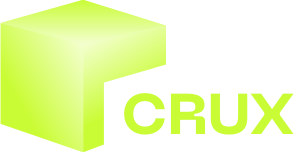
The Risks of Centralized Price Oracles in DeFi and Alternatives
In the fast-evolving world of decentralized finance (DeFi), the use of price oracles has become essential for accessing external data within smart contracts. Price oracles play a vital role in determining the value of various assets and facilitating seamless transactions on decentralized platforms. However, the reliance on centralized price oracles comes with its own set of risks. In this article, we will explore the potential drawbacks of centralized price oracles in DeFi and discuss alternative solutions that can mitigate these risks.
The Significance of Price Oracles in DeFi
DeFi platforms enable users to participate in various financial activities without relying on traditional intermediaries. To ensure accurate and up-to-date pricing information, DeFi protocols utilize price oracles. These oracles act as bridges between the blockchain and real-world data sources, providing critical market data required for smart contract execution.
The significance of price oracles in decentralized finance (DeFi) cannot be overstated. Price oracles serve as a vital bridge between the blockchain and the real-world financial markets, providing accurate and up-to-date pricing data that is crucial for the functioning of various DeFi protocols.
In DeFi, smart contracts execute financial transactions without the need for intermediaries. However, these smart contracts require accurate and reliable information about the prices of assets such as cryptocurrencies, tokens, and other financial instruments. This is where price oracles come into play.
Price oracles act as trusted data providers that feed real-time market prices into the smart contracts. They enable DeFi platforms to determine the value of assets, calculate interest rates, execute trades, and perform other financial operations. Without price oracles, the automation and efficiency of DeFi would be severely hindered.
By integrating external data sources and APIs, price oracles ensure that DeFi platforms have access to the most accurate and up-to-date pricing information available. This information is critical for maintaining the integrity of financial transactions and ensuring that users receive fair and reliable outcomes.
In summary, price oracles play a crucial role in DeFi by providing accurate pricing data that enables the seamless execution of smart contracts and facilitates a wide range of decentralized financial activities. They are the backbone of DeFi, enabling trust, transparency, and efficiency in the decentralized financial ecosystem.

Centralized Price Oracles: A Double-Edged Sword
While centralized price oracles offer convenience and accessibility, they introduce significant risks to the DeFi ecosystem.
Vulnerabilities and Manipulation
Centralized price oracles can be vulnerable to data manipulation or manipulation by malicious actors. If a single entity controls the oracle, it becomes susceptible to manipulation, resulting in inaccurate price feeds. Manipulated data can lead to improper valuations, affecting the overall integrity of DeFi platforms. Centralized price oracles in DeFi are susceptible to vulnerabilities and manipulation. When a single entity controls the oracle, it becomes a potential target for manipulation, resulting in inaccurate price feeds. Malicious actors can exploit these vulnerabilities to manipulate data, leading to improper valuations and compromising the integrity of DeFi platforms. Such manipulation can have severe consequences, including financial losses and instability within the ecosystem. It highlights the importance of exploring decentralized alternatives that minimize the risks associated with centralized price oracles and ensure the reliability and fairness of DeFi transactions.
Single Point of Failure
Relying on a single centralized price oracle creates a single point of failure. If the oracle experiences downtime or is compromised, it can disrupt the entire DeFi ecosystem. Such vulnerabilities can result in failed transactions, loss of funds, and overall instability. A major concern with centralized price oracles in DeFi is the lack of transparency. Users often struggle to validate the accuracy and integrity of the data provided by these oracles. Without transparency, it becomes challenging to determine the source of the price feeds or assess the reliability of the information. This lack of transparency raises questions about trust and accountability within the DeFi ecosystem. In contrast, decentralized price oracles promote transparency by allowing users to directly access and audit the data sources used. This transparency enhances trust and confidence in the accuracy of the price feeds, contributing to a more robust and reliable DeFi environment.
Lack of Transparency
Centralized price oracles often lack transparency, making it challenging for users to validate the accuracy of the provided data. Without transparency, users cannot independently verify the source or integrity of the price feeds, raising concerns about trust and accountability. A major concern with centralized price oracles in DeFi is the lack of transparency. Users often struggle to validate the accuracy and integrity of the data provided by these oracles. Without transparency, it becomes challenging to determine the source of the price feeds or assess the reliability of the information. This lack of transparency raises questions about trust and accountability within the DeFi ecosystem. In contrast, decentralized price oracles promote transparency by allowing users to directly access and audit the data sources used. This transparency enhances trust and confidence in the accuracy of the price feeds, contributing to a more robust and reliable DeFi environment.
Potential for Collusion
In centralized price oracles, there is a risk of collusion between the oracle provider and other market participants. This collusion can lead to biased or manipulated price data, compromising the fairness and reliability of DeFi platforms. The potential for collusion is a significant concern when it comes to centralized price oracles in DeFi. When a single entity controls the oracle, there is a risk of collusion between that entity and other market participants. This collusion can lead to biased or manipulated price data, compromising the fairness and reliability of DeFi platforms. Collusion can distort market prices, influence trading decisions, and undermine the trust of users in the ecosystem. Decentralized price oracle solutions help mitigate this risk by incorporating decentralized governance models and consensus mechanisms that prevent any single entity from exerting undue influence over the data provided, ensuring a more transparent and trustworthy DeFi environment.
Decentralized Price Oracle Solutions
To address the risks associated with centralized price oracles, decentralized alternatives have emerged in the DeFi landscape. These solutions leverage the power of blockchain technology and decentralized consensus mechanisms to ensure the integrity and reliability of price feeds.
Chainlink
Chainlink is one of the most prominent decentralized oracle networks in the DeFi space. It employs a decentralized network of node operators that retrieve and validate data from various sources. Chainlink’s architecture enables high-security standards and tamper-resistant price oracles.
Band Protocol
Band Protocol offers a decentralized cross-chain oracle solution that aggregates data from multiple sources, including APIs, traditional financial data providers, and decentralized data networks. The platform utilizes a network of validators to ensure the accuracy and reliability of price data.
Tellor
Tellor is a decentralized oracle solution built on the Ethereum blockchain. It employs a network of miners who compete to provide accurate data by solving Proof of Work challenges. Tellor’s consensus mechanism ensures data integrity and resistance to manipulation.
Uniswap V2 Oracle
Uniswap, one of the leading decentralized exchanges, introduced its own oracle solution, the Uniswap V2 Oracle. It relies on time-weighted average prices (TWAP) to provide reliable and transparent price feeds for various assets. The Uniswap V2 Oracle enables DeFi platforms to access accurate pricing information without centralized dependencies.
Benefits of Decentralized Price Oracles
Decentralized price oracles offer several advantages over their centralized counterparts.
- Security and Reliability
Decentralized price oracles enhance the security and reliability of DeFi platforms. By distributing the oracle infrastructure across multiple nodes, the risk of manipulation and single points of failure is significantly reduced.
- Data Integrity and Transparency
Decentralized price oracles promote data integrity and transparency. Users can verify the integrity of price feeds by directly accessing and auditing the data sources used by the oracles. This transparency fosters trust and accountability within the DeFi ecosystem.
- Resistance to Manipulation
Decentralized price oracles are designed to resist manipulation attempts. The consensus mechanisms and decentralized governance structures ensure that no single entity can influence the data provided by the oracles, maintaining the integrity and fairness of DeFi platforms.
- Decentralized Governance
Many decentralized price oracle solutions incorporate decentralized governance models. This allows platform users to participate in decision-making processes, ensuring community-driven control and reducing the influence of centralized entities.
Challenges and Considerations
While decentralized price oracles offer significant benefits, there are challenges and considerations that must be addressed.
- Data Accuracy and Latency
Ensuring accurate and timely data from various sources remains a challenge for decentralized price oracles. Latency in data retrieval and processing can impact the overall performance of DeFi platforms, requiring continuous improvements in data aggregation and validation mechanisms.
- Oracle Sybil Attacks
Decentralized price oracles face the risk of Sybil attacks, where malicious actors create multiple identities to manipulate the consensus. To mitigate this risk, robust identity verification mechanisms and reputation systems are crucial.
- Integration Complexity
Integrating decentralized price oracles into existing DeFi platforms can be complex and time-consuming. Developers need to understand the intricacies of each oracle solution and ensure seamless integration with their applications.
Conclusion
Centralized price oracles pose significant risks to the DeFi ecosystem, including vulnerabilities, manipulation, single points of failure, and a lack of transparency. To address these risks, decentralized price oracle solutions have emerged, providing enhanced security, data integrity, and resistance to manipulation. Solutions like Chainlink, Band Protocol, Tellor, and Uniswap V2 Oracle offer decentralized alternatives that mitigate the risks associated with centralized oracles. However, challenges such as data accuracy, Sybil attacks, and integration complexity must be carefully addressed to ensure the widespread adoption of decentralized price oracles in DeFi.
FAQs (Frequently Asked Questions)
- What is a price oracle? A price oracle is a mechanism that provides external data, specifically price information, to decentralized applications and smart contracts.
- Why are centralized price oracles risky? Centralized price oracles are risky due to vulnerabilities to manipulation, single points of failure, lack of transparency, and the potential for collusion.
- What are decentralized price oracle solutions? Decentralized price oracle solutions leverage blockchain technology and decentralized consensus mechanisms to provide reliable and tamper-resistant price feeds.
- How do decentralized price oracles ensure data integrity? Decentralized price oracles ensure data integrity through distributed networks, consensus mechanisms, and transparent data sources that users can independently verify.
- What challenges are associated with decentralized price oracles? Challenges include data accuracy and latency, Sybil attacks, and integration complexity.


